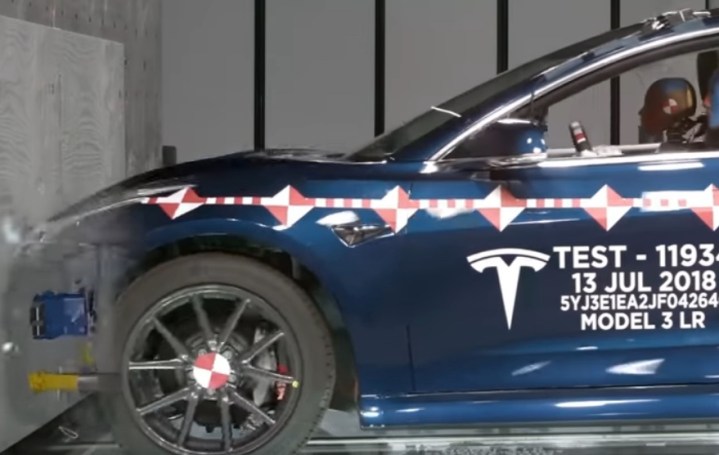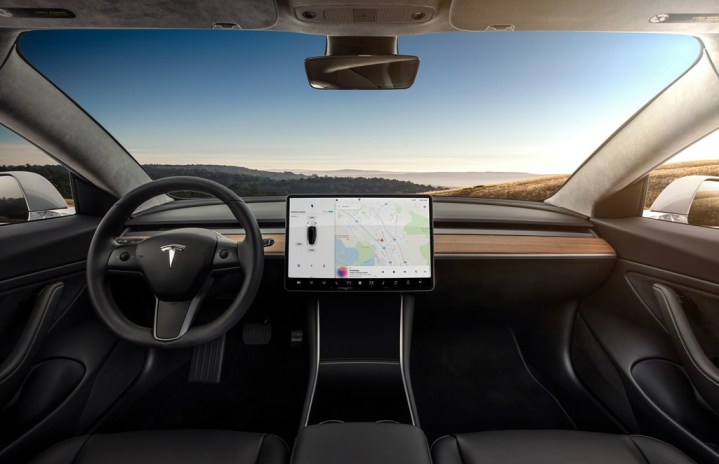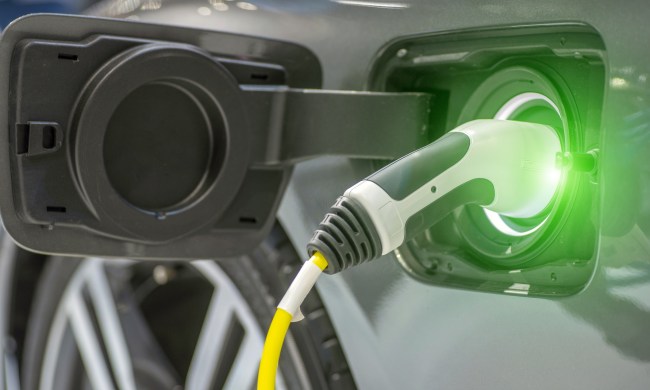While many people will be primarily concerned with EV range before buying their first electric vehicle, others are a little nervous about having a giant lithium-ion battery strapped to their car’s undercarriage. Those things can catch fire — just ask Chevy Bolt owners. But how much of a real danger is that? And should it prevent you from buying an EV?
What safety features do EV batteries have?
The major safety issue with lithium-ion batteries is their temperature. If they get too hot, they’re prone to igniting. If they get too cold, they freeze and permanently stop working. Charge and discharge rates need to be carefully regulated too, or you’ll get electrical fires. Over time, small imperfections in a battery’s structure can lead to short circuits and reduced lifetime.

EVs have what are called battery management systems (BMS) to keep tabs on all of these variables. The BMS will generate warnings when needed and intervene directly by cutting off power if things get out of hand. EV battery packs also have thermal management systems. Typically, this is a closed loop of liquid coolant flowing alongside the battery cells, but air cooling and welding battery cells directly to the car chassis are also means of mitigating extreme heat.
How well do EVs handle a crash?
Since there’s no engine at the front of an EV, the hood typically houses a frunk — meaning a front trunk. This acts as a large crumple zone in the case of a head-on accident. One crash in Germany avoided casualties thanks to this inherent characteristic of electric vehicles. Crash tests bear this out. Popular EVs like the Tesla Model 3, Hyundai Ioniq 5, and Nissan Leaf have all received overall five-star ratings from the National Highway Traffic Safety Administration (NHTSA).

Though you might worry about the risk of fire from the batteries, the Insurance Institute for Highway Safety has crashed 55 different models of EVs and has yet to encounter a fire. But they do happen infrequently, like when a speeding Tesla Model S crashed in 2019.
As with any car, you need to take precautions with an electric vehicle. Luckily, the technology in them is advanced enough to be able to mitigate more risks than ever. An incredible amount of intelligence is tucked inside that is able to keep tabs on what’s happening in your battery and around you on the road to ensure a safe ride. Over time, those safeguards are only going to get better.
Is autopilot driving safe?
Not all electric vehicles have autopilot, and truly autonomous driving is a ways off, but EVs tend to have more intelligent driving features built-in than your average car. Sensors for proximity detection are a welcome safety feature, and rearview cameras have become a mainstay in all cars, not just EVs. Things get a little trickier when it comes to advanced features like lane assist and Tesla Autopilot.

A recent German study found that cars capable of passing, merging, and swerving on their own increase safety by 18%. Vehicles on highway autopilot are 5% safer. A 2018 literature review by AAA is even more optimistic, suggesting 40% of passenger vehicle crashes could be avoided with advanced driver assistance systems. Tesla publishes its own data quarterly, and has indicated that per mile driven, autopilot drivers crash nearly 10 times less than the national average.
The NHTAS is now publishing monthly data on crashes involving advanced driving assistance technology. This is fairly new, so the data is fuzzy. For now, all we see from this reporting is that the cars had features like autopilot equipped, not that they were necessarily active at the time of the crash. Still, of all the 130 crashes tabulated between July 2021 and May 2022, only 16 reported any injuries, one that was serious.
Despite all of that, U.S. legislators aren’t entirely sold. Sens. Edward Markey (D-MA) and Richard Blumenthal (D-CT) have issued a joint statement that applauds the NHTSA’s investigations while casting serious doubt on the safety of driving with autopilot:
“NHTSA’s findings will be essential to improving the safety of automated driving and advanced driver assistance systems for the sake of public safety. Every day that Tesla disregards safety rules and misleads the public about its Autopilot system, our roads become more dangerous.”



